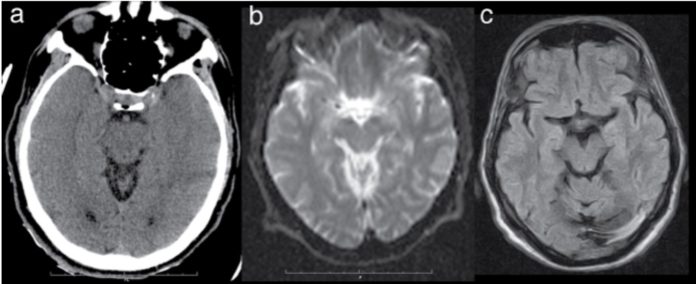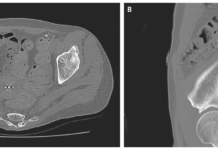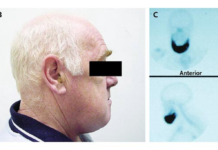
A 60-year-old male got a heatstroke after spending three hours in the gym. A unique case of heatstroke complications!
A 60-year-old, otherwise healthy male was brought to the hospital after losing consciousness in the sauna after spending 3 hours in the gym performing strenuous physical activity. He was also having nausea and diarrhea during the preceding days. The doctors suspected heatstroke.
The patient had no history of chronic medical or psychiatric disease.
On examination, he was unconscious with a Glasgow Coma Scale score of 7. Additionally, he had a body temperature of 39°C. He had miotic pupils and no motor responses to noxious stimuli. However, the patient showed athetotic movements.
Investigations revealed a normal electroencephalogram (EEG). However, his brain computed tomography scan demonstrated bilateral temporal lobe oedema and the hippocampus had reduced visualization of the cortical circumvolutions. Moreover, the CT scan also showed a loss of grey-white matter differentiation due to vasogenic oedema.
He required mechanical ventilation, so the doctors intubated him. He remained in a deep coma for the next 24 hours.
Magnetic resonance imaging of the brain after 24 hours revealed no abnormal findings. Neither he had any signs of liver or renal damage. However, he later developed coagulopathy, thrombocytopenia, and leukocytosis.
After waking up from the coma, the patient was confused, stuporous, and amnesic. However, he showed substantial clinical improvement during the following week. His memory had improved, and he had no residual motor impairments.
His doctors discharged him after 11 days since he was doing well.
Follow-up:
During the 6-month follow-up, the patient was attentive, oriented, and alert. He was able to recall recent as well as remote events. He had returned to his job. However, he had complaints of memory impairment in everyday life.
His neuropsychological assessment was normal. Verbal- and visual-spatial short-term memory were excellent. But, he showed impairment in both verbal and visual-spatial long-term memory tests.
Rey Auditory Verbal Learning Test revealed normal immediate recall impaired delayed recall and recognition.
Rey Auditory Verbal Learning Test revealed normal immediate recall but impaired delayed recall and recognition.
In the Corsisupra-spantest, he could not learn the eight-block sequence despite 18 trials, with recall not exceeding his short-term span.
Rivermead Behavioural Memory Test results were below normal limits, with more prominent prospective memory deficits. Retrograde memory was normal.
The patient’s test findings suggested an impairment of the hippocampal-dependent encoding/storage processes after the heatstroke. Therefore, this case concludes that heatstroke can lead to long-term complications.
Reference:
Ruggeri M, Rosini P (2016) Permanent Memory Deficits with Normal MRI Following Heat Stroke after Physical Activity and Sauna. Int J Neurol Neurother 3:050. 10.23937/2378-3001/3/3/1050



